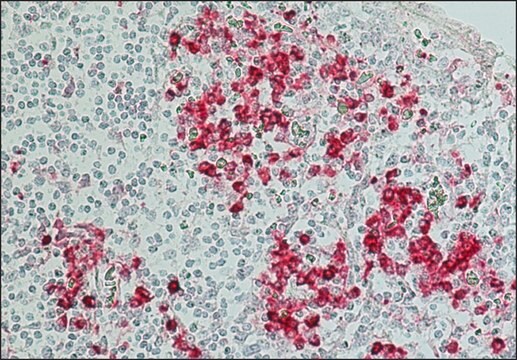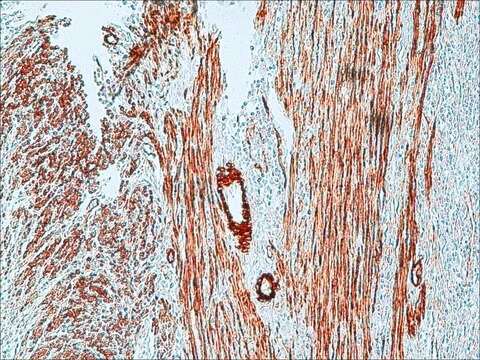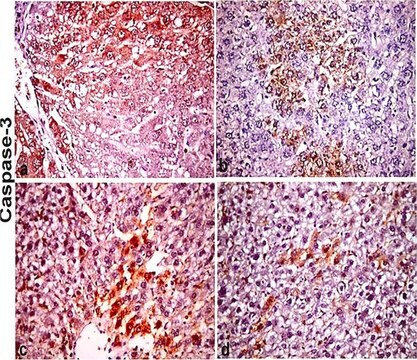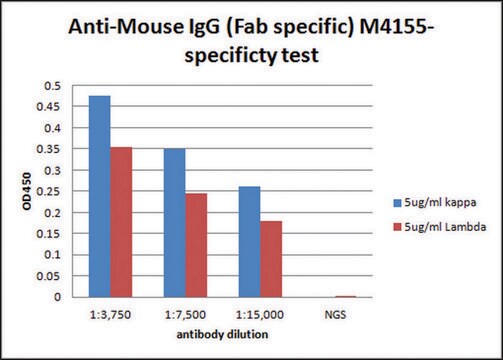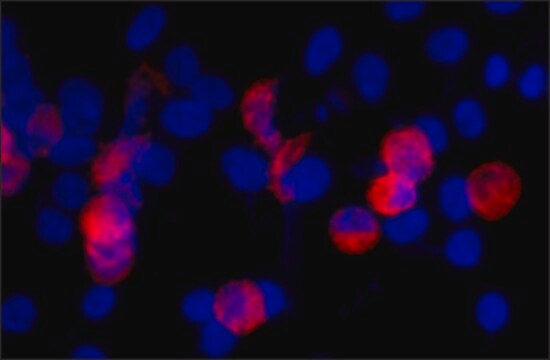A1418
Anti-Mouse IgG (Fc specific)–Alkaline Phosphatase antibody produced in goat
affinity isolated antibody, buffered aqueous solution
Synonym(s):
Goat Anti-Mouse IgG (Fc specific)–AP
About This Item
biological source
goat
recombinant
expressed in goat
conjugate
alkaline phosphatase conjugate
antibody form
affinity isolated antibody
antibody product type
secondary antibodies
clone
polyclonal
form
buffered aqueous solution
species reactivity
mouse
should not react with
human
technique(s)
direct ELISA: 1:40,000
immunohistochemistry (formalin-fixed, paraffin-embedded sections): 1:25
western blot: 1:50,000-1:100,000 using total cell extract of HeLa cells
shipped in
wet ice
storage temp.
2-8°C
target post-translational modification
unmodified
Looking for similar products? Visit Product Comparison Guide
General description
Immunogen
Application
Other Notes
Physical form
Preparation Note
Disclaimer
Not finding the right product?
Try our Product Selector Tool.
Storage Class
10 - Combustible liquids
wgk_germany
WGK 2
flash_point_f
Not applicable
flash_point_c
Not applicable
Certificates of Analysis (COA)
Search for Certificates of Analysis (COA) by entering the products Lot/Batch Number. Lot and Batch Numbers can be found on a product’s label following the words ‘Lot’ or ‘Batch’.
Already Own This Product?
Find documentation for the products that you have recently purchased in the Document Library.
Customers Also Viewed
Immunoassay for Listeria monocytogenes
Articles
The enzyme-linked immunosorbent spot (ELISpot ) assay enables visualization of multiple secretory products from a single responding cell. The ELISpot provides both qualitative (type of immune protein) and quantitative (number of responding cells) information.
Our team of scientists has experience in all areas of research including Life Science, Material Science, Chemical Synthesis, Chromatography, Analytical and many others.
Contact Technical Service